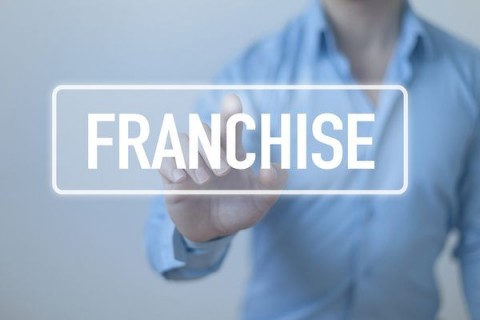Are you thinking about starting your business but finding that you are not sure about what that business should be? If so, franchising might be the best option for you.
Franchising is a business model where the business owner (franchisor) licenses the trademarks and methods to an independent operator (franchisee). Franchising has a lot of advantages for business owners, including name recognition, a clearly defined and established business model, and in many cases, corporate support in marketing, operations, and financial structures.
There are two basic types of franchise models:
- Product or trade name franchising, where the franchisor retains the right to the name or trademark and sells the rights to a franchise.
- Business format franchising, where the franchisor and franchisee are in more of a partnership, with the franchisor providing certain services such as site selection, product supply, or marketing.
To answer your questions and provide some context on why franchising is such a popular option, here is a comprehensive buyer’s guide to franchise opportunities.
Why Franchise?
Why would a business opt to franchise? Generally, franchising is an economic way for a corporate entity to grow and retain market share. The model allows for local management and responsibility while ensuring that the brand identity grows.
The franchise relationship is a joint commitment between franchisor and all franchisees to grow market share. In most cases, the franchisee commits to using the brand name, products, marketing, and operating systems to run the business.
In a franchise system, you are not in competition with other local franchise owners. In fact, the opposite is true. Together, you are partners in establishing and reinforcing the brand in a certain market. There is a shared responsibility for providing consistency in the brand, including appearance, product, service, and convenience. This approach helps drive repeat business and customer loyalty.
Should I Become a Franchisee
Here are some things to think about when deciding whether operating a franchise makes the most sense for you:
Talent. Is there technical expertise or a particular skill set needed to own a franchise, and if so, what do you bring in terms of skills, talent, and experience? The answer is – it depends. While many franchises don’t require you to know everything about a franchise, it’s helpful to have some understanding. After all, how can one have passion for something they know nothing about? So, if you’re going to run a dog daycare facility, you may not know how to run the business (yet), but you should at least know how and enjoy dealing with dogs.
Goals. You need to know your short- and long-term goals when choosing a franchise. First, you should evaluate why you want to run a franchise and know if you intend to run the franchise yourself or hire a manager. If the franchise will be your main source of income, you’ll need to determine the minimum income requirements to fund not only your business, but to sustain your personal expenses.
Investment. In order to have enough income to start the business and maintain a lifestyle, you will need adequate funding. In order to accomplish this, you need to have a realistic estimate for working capital, and by having reserve funding to help with unexpected costs. The most popular funding option is a Small Business Administration (SBA) loan, but for those that don’t meet all the requirements, may opt to use their retirement funds. Often, first-time franchisors find that a combination of the SBA and 401(k)/IRA rollover prove to be the best option.
Advantages to Franchising
Why choose to become a franchise owner? It is not for everyone but offers considerable benefits and a desirable lifestyle. Here are just a few of the top reasons to become a franchisee.
- Proven Business Model. With a franchise, you are buying into a business model that has already established itself as a success. The products and services have been tested and offer appeal to customers, whether as a B2B or B2C model. You are plugging into a model that works.
- Be Your Own Boss. As a franchise owner, you are your own boss. No longer constrained by a job in corporate America, franchise owners gain control of business and can put their own stamp of success on it. You make the decisions. You have a sense of independence and authority that is sadly missing in many corporate jobs.
- Rewards for Hard Work. Franchising is a bottom-line business. That means you reap what you sow. Your hard work and commitment show up every day in the revenues collected. You will provide for yourself and your loved ones by doing things your way — the right way.
- Site Selection. Many franchisors are deeply involved in site selection. Companies have the experience, demographic data, databases, relationships, and best practices to select the right site to drive customers.
- Training and Support. Franchisors want franchisees to succeed, which is why training and support are included in the franchise fee. Training will usually include extensive information on the brand, its history, and its values. It will also include specifics on operations, including technology used, products, equipment, and operating best practices. On the subject of continued support, the April 2017 Franchising Worldarticle “Setting the Standard: How to Maintain Franchise System Quality Control”notes, “Even though an intensive training process is crucial, it’s not the end-all, be-all. Franchisors need to provide ongoing support for their franchisees. Whether it is in the form of hands-on or remote support, it is important to maintain an open line of communication with the franchisees.” So, you can expect your franchisor to continue to offer support and ongoing training once the doors open.
- Marketing and Advertising. Your brand has built-in tools for marketing and advertising the business. You will be able to tap into national and regional advertising promotions, slogans, and sales. In many cases, the franchisor provides advertising and marketing resources you can tap into and use to do your own local advertising.
- Exclusivity. Your franchise fee buys you territoriality and the right to exclusive rights to franchising within that territory. Territories are designed to provide each franchisee with the right number of potential customers from which to draw.
- Purchasing Power. By being a part of a franchise network, you can leverage the considerable purchasing power of large organizations. Bulk purchasing agreements and discounts can greatly reduce the costs of materials, products, and supplies.
A franchisee has independence, security, authority, and support in realizing financial and operational success.
New or Existing Franchise?
Depending on the franchisor, there are several options for entering into a franchise agreement. You can open up a territory for the first time or you can buy an existing franchise.
Buying an already established franchise in a territory has several advantages. It has already been doing business, so the challenges of starting up the business area have already been addressed. There are existing employees, customers, vendors, and cash flow. There is a history to the franchise, for better or worse. There are also financial records that can be reviewed prior to a purchase. There is less of a guess about future financial performance.
But that history can be a double-edged sword. You are also buying the previous owner’s reputation for better or worse. Financials will tell a lot, but not the whole story. Why is the existing owner leaving? Will the existing staff stay on under new management? Is the business on the rise or the decline in the area?
You will also want to ask about any competitors that have just come into the area or are likely to do so. Have the demographics of the neighborhood changed or are they changing? What impact will those changes have on the business?
One advantage to purchasing an existing franchise is that often price is negotiable, which is not always the case with a new franchise.
Purchasing Basics
If you have decided to buy into a franchise, you will likely be paying an up-front fee that guarantees you the rights to the franchise within a particular territory. This franchise fee also includes training, site selection, equipment access, and products.
Once the business is operational, the franchisee will pay an ongoing royalty payment on a monthly, quarterly, or annual basis. This payment is usually a percentage of the franchise’s gross sales. Other fees, such as for marketing, are often a part of the franchise agreement.
Franchise agreements also usually require franchisees to abide by certain brand guidelines, such as uniforms, promotions, signage, logo usage, and even operating procedures. While this may seem restrictive, remember that the advantages to buying into an established brand are considerable.
Financing Your Franchise
One of the most important aspects of opening a franchise is funding. But just as franchises come in all shapes and sizes, so do the options for funding them. Based on your timeline, risk tolerance, credit history, and more, the best option for you might be a single solution, or a combination of several options. These options can help to reduce the risk and worry about opening your own business.
Franchisor. The franchisor may have specific suggestions or recommendations about preferred lenders or provide debt financing themselves. Some franchisors offer incentives if you use their own financing or partner lenders.
Traditional Lenders. Banks and credit unions are still a good option, though many have tightened their eligibility guidelines for franchise loans since the Great Recession. Consider local and regional banks that have a deeper connection to the community where they operate.
Home Equity. Taking out a second mortgage on your home is a time-tested way to gain funds for special purchases, including starting your own business.
Business Partners. Finding a business partner or investor can help defray the costs of your business. It also means sharing the profits and decision-making with your partners.
Special Programs. Often federal and private lenders, including franchisors, may offer special programs or benefits for financing to military veterans, minorities, or women.
Governmental Programs. The SBA offers special loan and equipment purchase programs that can help with franchise investments. Some states, cities, and towns may have additional incentive programs that allow for tax credits or loan programs.
Retirement Funds. Many franchisees have used an innovative method of securing funds for a small business. If you have an existing 401(k) retirement savings plan or an IRA, you can use those funds to fuel your dream. This hidden gem in franchise funding allows you to open your business tax-deferred and penalty-free.
At Benetrends, we have been helping franchisees and other small business owners finance their dreams for decades. We pioneered the use of 401(k) business funding and have helped thousands of business owners since 1983 with many types of business lending solutions.
In addition, we provide a full array of business services, including retirement plan administration, credit card processing, insurance products, and start-up and small business loans.
For more information about funding your franchise dreams, schedule a consultation or check out the comprehensive information found at Franchising 101.

